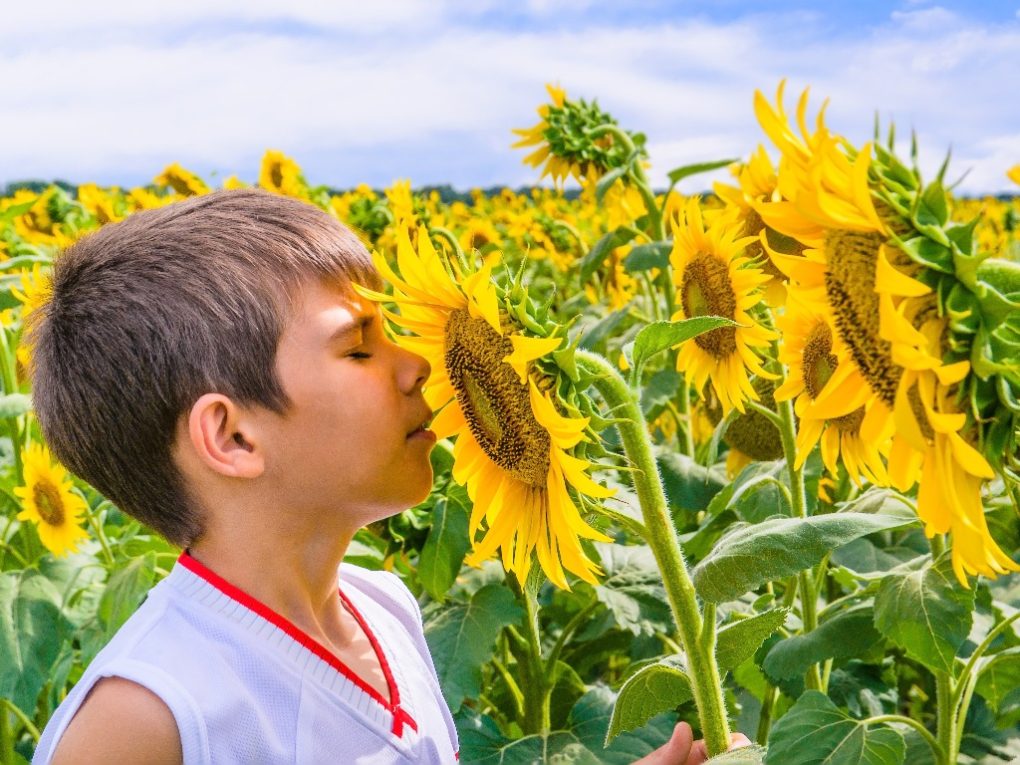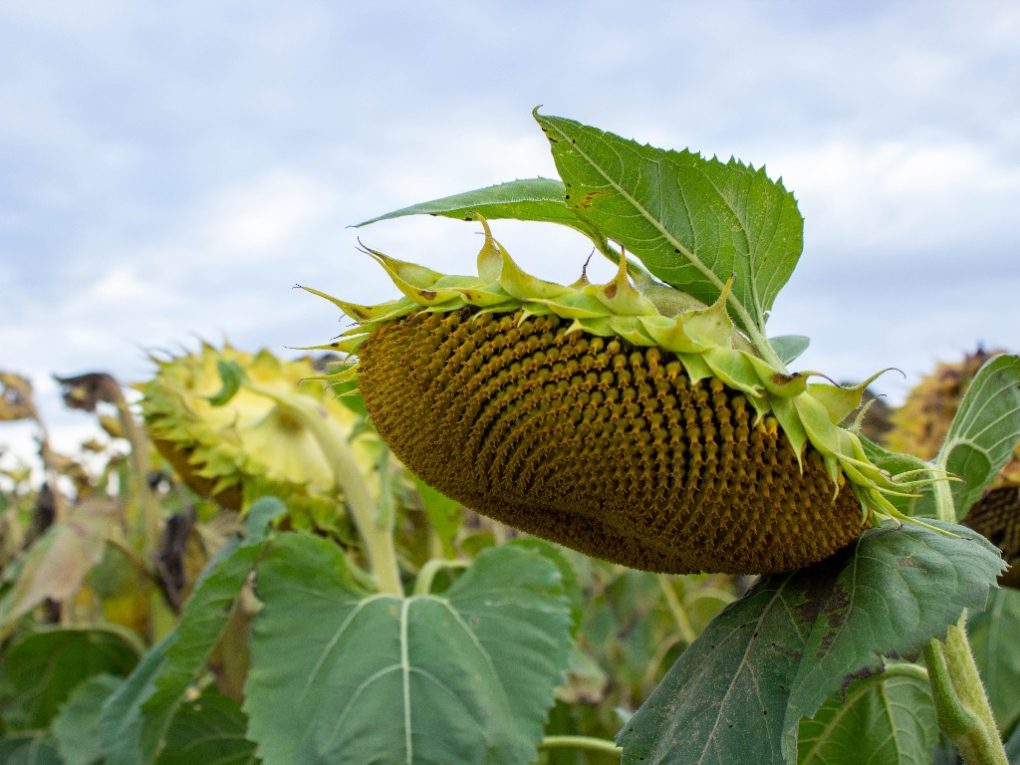Do Sunflowers Have a Scent: Factors That Affect How a Sunflower Smells
Yes, sunflowers have a mild, sweet, and slightly nutty scent, which some call a grassy or hay-like aroma. They can also sm. However, the scent of sunflowers can be subtle and only easily detectable if you get up close to the blooms and take a deep sniff.
Additionally, not all sunflower varieties have a noticeable scent, and the intensity of the fragrance can also vary depending on the time of day and growing conditions. Overall, while sunflowers are not typically grown for their scent, their unique fragrance can be a bonus for those who appreciate it.

Table of Contents
Factors That Affect Sunflower Scent
Genetics
Genetics plays a crucial role in determining the scent of sunflowers; some sunflower varieties have been selectively bred for their fragrance, while others have not. The genes controlling fragrance production in sunflowers are located in the plant’s DNA, determining the type and amount of fragrance compounds the plant will produce.
Different sunflower varieties may have different genetic variations that affect their scent. For example, some cultivars may have more genes for fragrance production than others, resulting in a stronger scent. Other genetic variations may affect the specific compounds produced by the sunflower, resulting in a unique scent profile.
Furthermore, genetic variations can interact with environmental factors to influence the plant’s scent. For instance, changes in temperature or light can affect the expression of fragrance-related genes, resulting in changes to the scent of the sunflower.
Growing Conditions
Here are a few ways in which growing conditions can affect sunflower fragrance:
- Soil quality: The quality of the soil can affect the scent of sunflowers. Soil rich in nutrients and organic matter can help promote healthy plant growth, resulting in a stronger, more complex scent.
- Temperature: Sunflowers grown in warmer temperatures may have a more intense scent than those grown in cooler temperatures. However, excessively high temperatures can also damage the plant and reduce its fragrance.
- Humidity: Humidity can affect the scent of sunflowers by altering the release and perception of fragrance molecules. High humidity can make it harder for fragrance molecules to travel through the air and be detected by the human nose.
- Water availability: Sunflowers that are well-watered may have a stronger scent than those that are not. However, overwatering can also damage the plant and reduce its fragrance.
- Sunlight exposure: Sunflowers that receive plenty of sunlight may have a stronger scent than those grown in shady conditions. Sunlight exposure can also affect the production of fragrance molecules by stimulating the plant’s metabolic processes.
Time of Day
During the morning, the sunflower’s scent is often more intense because the temperature is cooler and the humidity is higher, which creates an ideal environment for the release and spread of fragrance molecules. As the day progresses and the temperature rises, the scent may become less noticeable as the fragrance molecules evaporate more quickly or disperse further due to air currents.

The sunflower’s scent may become more noticeable in the early evening when the temperature cools down again. This is because cooler temperatures slow down the rate of evaporation of the fragrance molecules, allowing the scent to linger in the air for longer.
It’s worth noting that the scent of sunflowers can also be affected by other factors, such as wind, rain, and other plants or environmental pollutants. However, the time of day is a key factor to consider when trying to observe or enjoy the fragrance of sunflowers.
Stage of Development
Sunflowers typically emit a fragrance when they reach the reproductive stage when the flowers open, and the pollen is released. As the sunflower develops and matures, its scent can change.
Younger sunflowers tend to have a milder scent that may be less noticeable than a fully mature flower. As the sunflower reaches full maturity, its scent can become stronger and more complex, with more notes and nuances. After the sunflower has reached full maturity and starts to wilt, its scent may become less pronounced or change again. As a result, the fragrance of a wilting sunflower may become more musky or earthy.
The changes in a fragrance that occur during the different stages of sunflower development can also vary depending on factors such as genetics, growing conditions, and environmental factors.
Harvest Time
When sunflowers are harvested at different stages of development, the resulting scent can be different. For example, if sunflowers are harvested before they reach full maturity and the flowers are fully open, the scent may be less intense or nonexistent. This is because the volatile compounds responsible for the sunflower’s fragrance are still being produced and must be fully released.
If sunflowers are harvested when fully mature, and the flowers are fully open, the scent may be at its strongest and most complex. This is because the volatile compounds responsible for the fragrance have had time to accumulate and disperse fully.

If sunflowers are harvested after they have started to wilt, the scent may be less intense or have a different character. This is because the volatile compounds responsible for the fragrance may have started to break down or evaporate, or the flower no longer produces new fragrance molecules.
Potential Benefits of Using Sunflower Scent
One possible benefit of the sunflower’s scent is its mood-boosting properties. Like many floral scents, sunflowers’ fragrances can positively affect our emotional state, promoting calm, happiness, and relaxation.
Some people enjoy the scent of sunflowers for their pleasant and nostalgic qualities. The scent of sunflowers is often associated with summertime and warm weather, and it can evoke memories of picnics, gardens, and other outdoor activities. While the benefits of sunflower scent for humans are primarily subjective and anecdotal, many people find the fragrance to be soothing and enjoyable.
